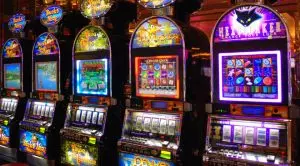 Recently, Australia has been reported as the country with the largest gambling losses per person worldwide. Despite this, anti-gambling campaigners have been facing the opposition of a powerful lobby insisting that poker machines in the country should not be limited in number.
Recently, Australia has been reported as the country with the largest gambling losses per person worldwide. Despite this, anti-gambling campaigners have been facing the opposition of a powerful lobby insisting that poker machines in the country should not be limited in number.
Lately, South Australian election has kindled the sparkle of a massive gambling-related discussions, with the leader of the SA-BEST party, Nick Xenophon, being strongly criticised for his updated gambling policy. A few weeks ago, in February, Xenophon has surprisingly presented a gambling reform policy which did not correspond to some of the basic principles declared earlier by Mr. Xenophon himself.
About twenty years ago, Mr. Xenophon entered the South Australian parliament with the pledge to follow a strategy aimed at banning all poker machines in the state. Last month he revealed a gambling reform package featuring a number of measures, including a reduction in the number of poker machines available in clubs, hotels and pubs, and by this dropped his intentions to seek tighter regulation of pokies.
The new gambling reform package unveiled by Xenophon has sparked a campaign initiated by the Australian Hotels Association, blaming the leader of SA-BEST party for putting more than 25,000 jobs in the region at risk. At the same time, anti-pokies campaigners have pushed for better and more effective regulation of the machines in Tasmania, which has also been considered a region facing the negative consequences of pokies-related harm.
Pokies Blamed for Growing Gambling Addictions
 As mentioned above Australia has been revealed as the country having the largest number of poker machines per person in the world, excluding special areas such as Macau and Monaco.
As mentioned above Australia has been revealed as the country having the largest number of poker machines per person in the world, excluding special areas such as Macau and Monaco.
According to reports, one poker machine was available for 114 Australians in 2015. What is more, local players generate the largest gambling losses on a global scale. As revealed by the Australian Gambling Research Centre (AGRC), approximately 6.8 million Australians, or about 39% of the country’s adult population, are regular gamblers.
During the elections in Tasmania, the Liberal government had shared intentions to hold a tender for the poker machines licence after 2023, which was expected to bring massive revenue to the state. However, towards the end of 2017, the Government revealed that pokies operating licenses would be granted directly to the clubs and pubs that already offer them.
In any case, Australia has some important poker machines-related issues to deal with, amid heated debates on pokies on a nation-wide level. State governments should carefully consider both the facts that poker machines could bring lucrative revenues, but are also blamed for growing gambling addiction among local residents.
The rising gambling participation of local citizens have been one of the major concerns of researchers, with lotteries remaining as the most-preferred form of gambling. The other types of gambling activities which were among the favourite ones of players in Australia were pokies and instant scratch tickets.
- Author


